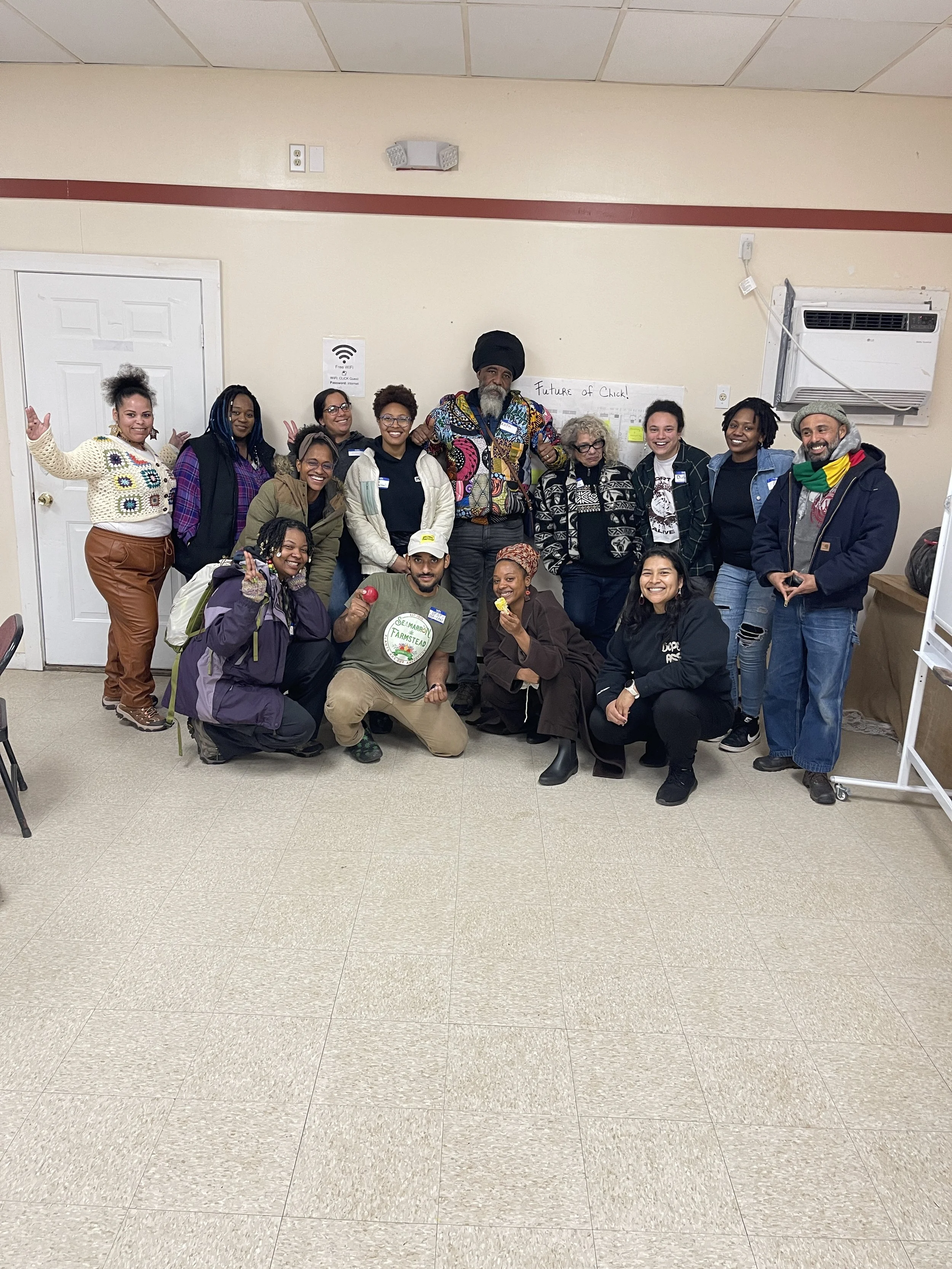program Beginnings
The Venture Farming Institute (VFI) was founded by a group of dedicated community leaders, Liz, Freedom, Jiff, Robert, Herb, and Julius, who aimed to address a fundamental question: How can we ensure new farmers of color are successful?
The history of agriculture in the U.S. has led to substantial land loss for many farmers of color, amounting to over $326 billion as of 2024. Farmers who identify as BIPOC (Black, Indigenous, and Latinx) make up only about 9% of agricultural landowners, while white landowners account for 91% of the market. This disproportionate ownership over the decades is a crucial aspect to consider, as it contributes to the ongoing failures in food systems that continue to impact many underrepresented groups in the U.S. Therefore, the challenge is not merely finding farmers of color but rebuilding them.
With professional backgrounds in areas ranging from women's maternal health, non-profit management, to food and crop production, these community leaders set out on a path of reclamation. Their exploration led them to develop a training program for aspiring farmers of color in the agricultural sector.
Through their research, they learned about the story of Venture Smith, the son of an African king, who was enslaved at an early age in Rhode Island but later purchased his freedom, and that of his wife and children in Connecticut. Smith's autobiography details his experiences and determination to live as a free man, mastering various business and agricultural trades in the early 1700s. His resilience and visionary work inspired them to honor Venture Smith’s legacy by naming the program after him, encouraging both program leaders and students enrolled to remember their ancestral histories and remain committed to their dreams.
By The Numbers
The Venture Farming Institute (VFI) launched in the fall of 2024, with funding from the USDA-OPPE 2501 Program Award. This financial support allows the program to operate for three years, offering a 16-week virtual and hands-on agricultural training experience for up to 20 students.
VFI is unique because nearly 75% of its instructors identify as people of color. This emphasis on diverse educators is a vital component of the curriculum in motivating students to pursue agricultural trades and broaden their career networks.
VFI has successfully increased its enrollment numbers each year, with approximately 55% of graduates now working as full-time farmers or in various roles within the agriculture industry. Visit our Cohorts page to learn more about the experiences of past cohort members.
The Venture Farming Institute is an agricultural training program for BIPOC individuals in Connecticut and Rhode Island. It operates with the dedicated support of its partners: One Freedom 4All, The African Alliance of Rhode Island, The Keney Park Sustainability Project, and the University of Connecticut Extension.
VFI's programming returns in Fall 2026, with applications opening in October 2025. Sign up for the wait list Here!
For inquiries or to donate and support VFI in cultivating the next generation of agricultural leaders in CT and RI, please contact our team.
These partners are an essential part of the work that we do with our prospective farmers in CT and RI and help inform our work and carry us forward!
Partners in the Work
-
1 Freedom for All’s mission is to teach youth of color to identify and stand in their own power, while addressing food insecurity in their immediate communities. Youth activists use the tools of organizing, popular education, culture and the arts, to create grassroots systemic change to achieve food justice.
Find out more at www.1freedom4all.org
-
The mission of the African Alliance of Rhode Island (AARI) is to promote unity within the African Communities in Rhode Island, advocate for the rights of Africans in Rhode Island, and educate the American public about Africa. AARI supports and benefits agricultural producers, while evaluating the profile of the continent and facilitating linkages between Americans and Africans.
Find out more at africanallianceri.org/
-
The Keney Park Sustainability Project (KPSP) aims to create the next generation of healthy, productive, and environmentally conscious citizens. Our programs are based in the federally-designated North Hartford Promise Zone, one of the poorest neighborhoods in the country, and predominantly black and Hispanic.
Find out more at keneyparksustainability.org
-
UConn Extension hosts several programs to help build a sustainable food system. Our programs help increase access and availability of fresh, local food for CT residents in K-12 schools and early care centers, as well as through direct purchasing from local farms. Sustainability encompasses environmental integrity, economic vitality, and social equity. Our programs are supported by state agencies and federal grants, with deep partnerships to community-based non profits, producer associations, and researchers/experts.
Find out more at: sustainablefood.uconn.edu
the Advisory committee
Sherlene Rodriguez
CT NOFA
Dishaun harris
Root Life
Shawn Joseph
Park City Harvest
Elizabeth Debs
Rhode Island School of Design
Joshua Capiga
CT Garlic Company
Tarshire battle
Roots 2 Empower
Robert chang
Echo Farm
Jiff Martin
UConn Extension






